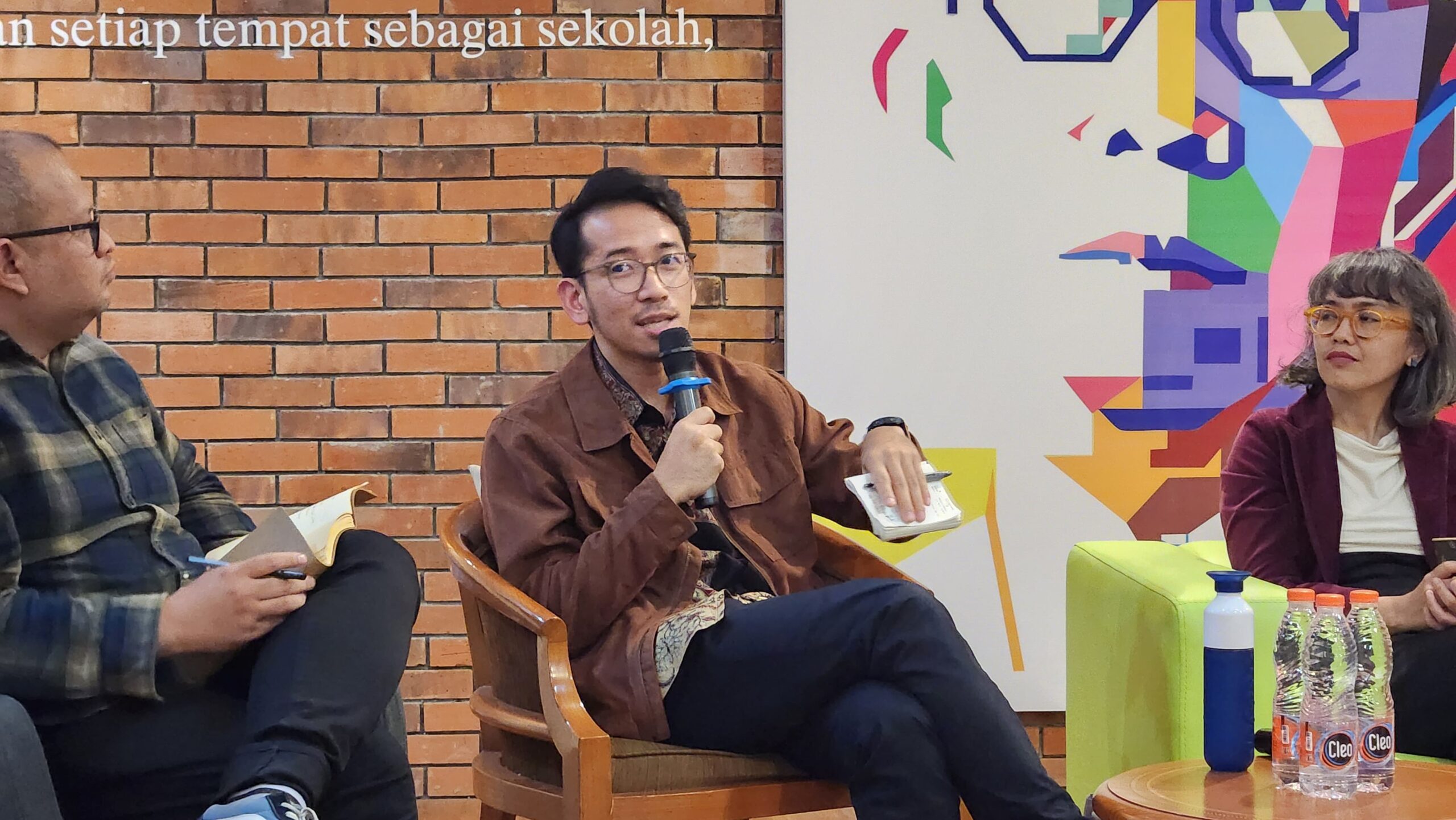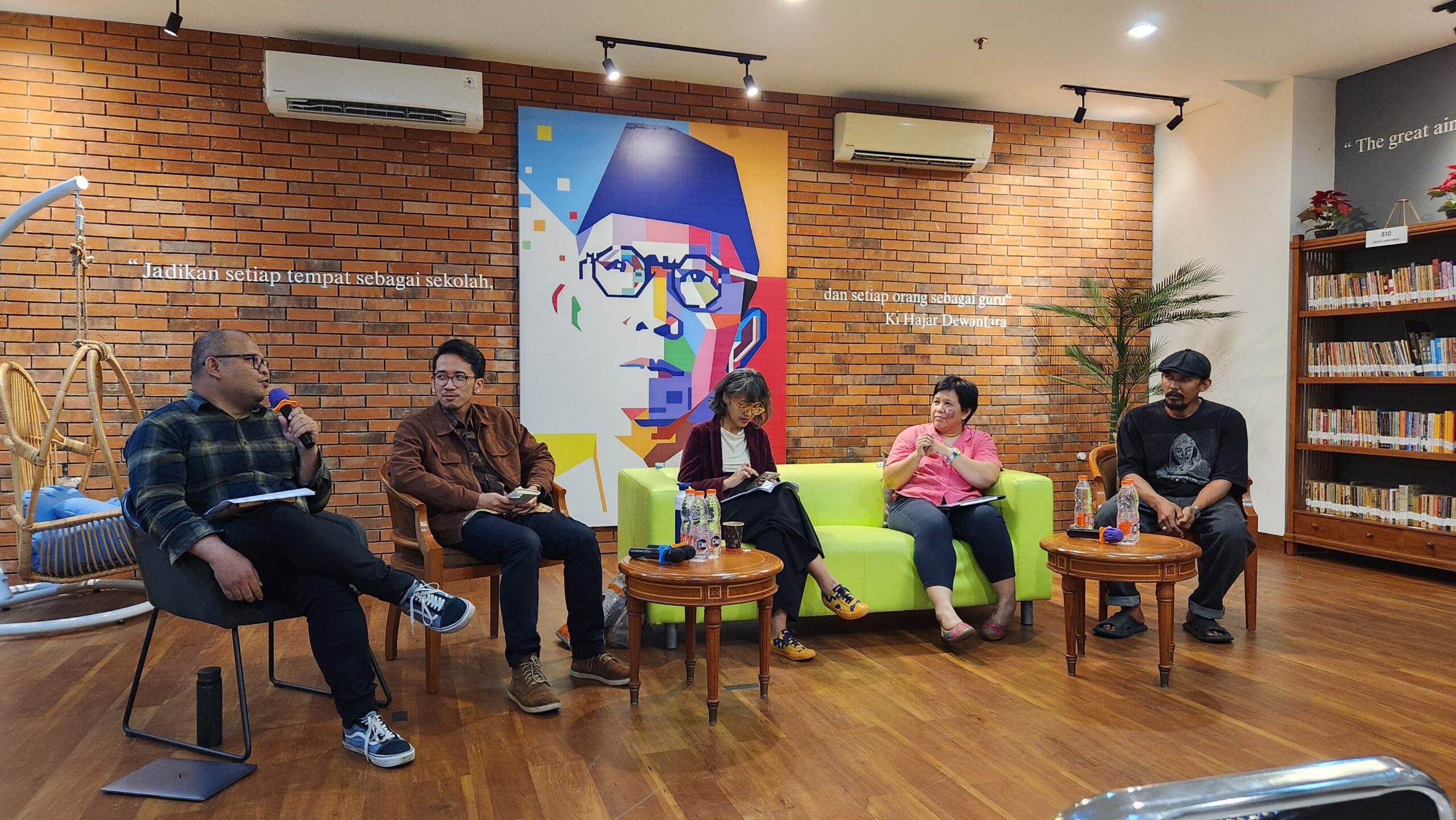November 05, 2024
Transit Oriented Development in the ‘Jakarta as Global City’ Concept
On October 24, 2024, Rujak Center for Urban Studies held an interactive dialogue titled “Jakarta as a Global City, What Does a Global City Even Mean?” at the Alex Tilaar Learning Room, Central Jakarta. The interactive dialogue, moderated by Reza Adhiatma, featured several speakers, including Dian Tri Irawaty from Rujak Center for Urban Studies, Miya Irawati from Public Virtue, Carlos Nemesis from ITDP Indonesia, and Dicko Purnomo from Jaringan Rakyat Miskin Kota.
During the dialogue, Carlos Nemesis, Urban Planning Associate ITDP Indonesia, shared his insights on the global city concept often referenced in government documents. He pointed out the various challenges in making Jakarta a global city, especially regarding public transportation usage, which currently stands at only around 10% of the ambitious target of 55% by 2044, along with the implementation of Transit Oriented Development (TOD), which often falls short.
While the TOD concept has great potential in integrating public transport with residential areas, development in certain locations, such as the LRT Jabodebek area, is largely dominated by developers focused on economic growth. These areas are often filled with shopping centers and luxury apartments, making it difficult for low- to middle-income communities to access affordable housing. Although the Regional Spatial Planning of Jakarta mandates that 20% of housing in TOD areas must be affordable, the challenges in achieving this are still significant.
Furthermore, Carlos raised concerns about the existence of urban toll roads, which may hinder the effectiveness of transit policies, as well as the potential rise in land prices that could displace low-income communities as urban development progresses. He stressed the need for awareness regarding these social impacts to prevent the global city vision from worsening existing inequalities.
Carlos urged the government to be more critical of the indicators of a global city to be applied in Jakarta. According to him, Jakarta’s success as a global city should not only be measured by economic growth or impressive infrastructure but also by the city’s ability to create equitable and fair welfare for all its citizens.
Catch the rerun here.


